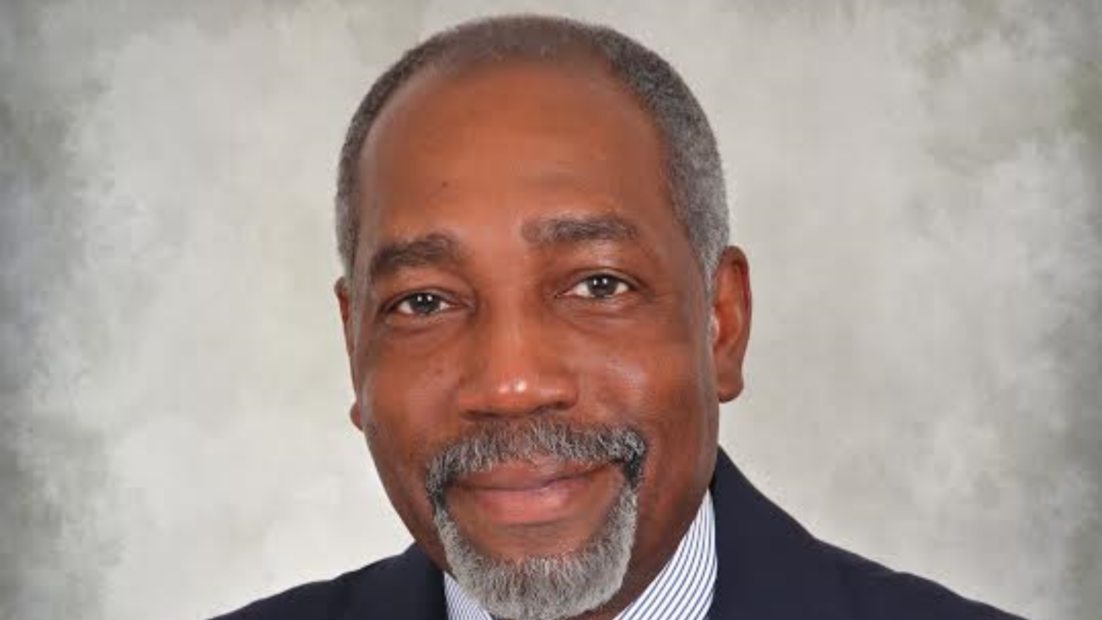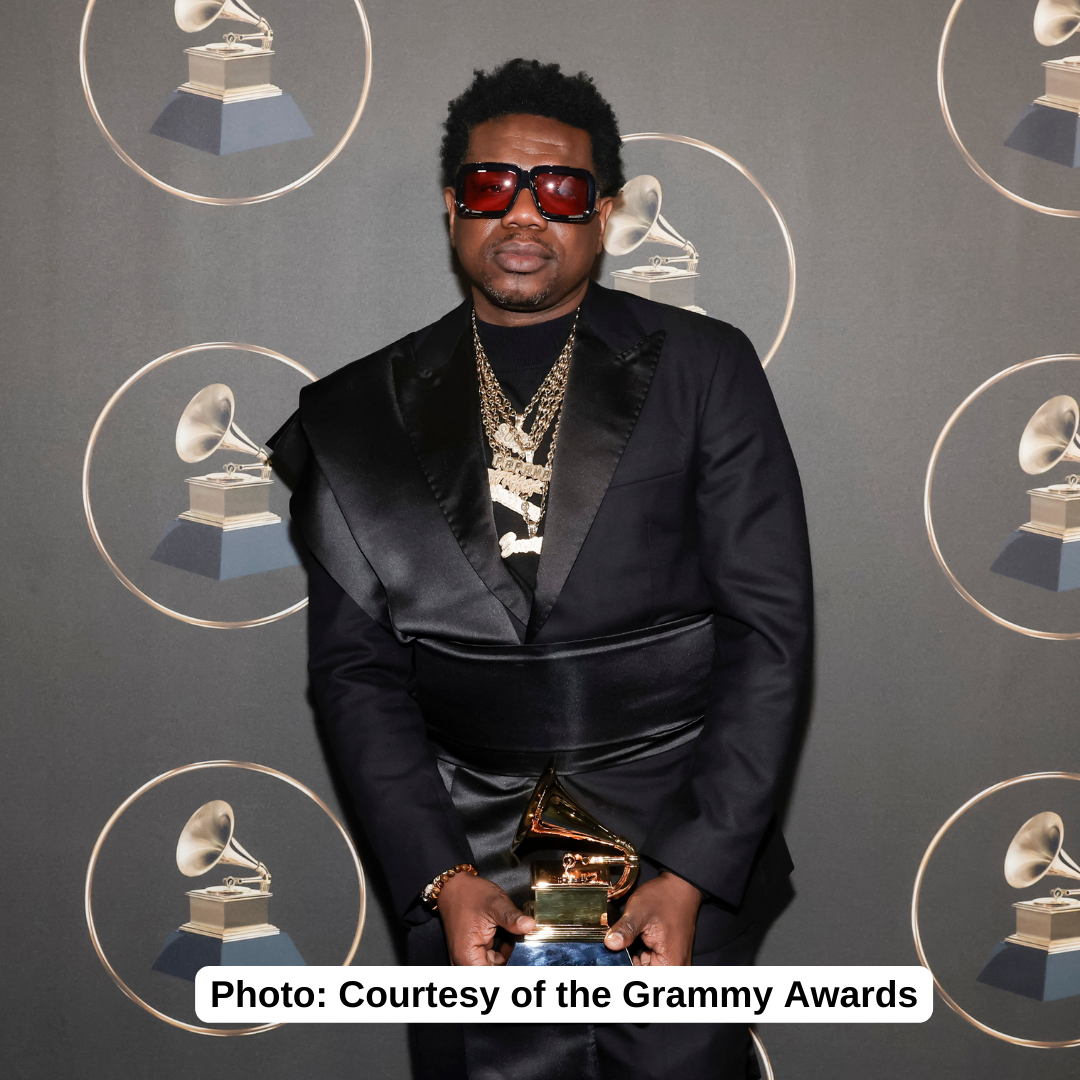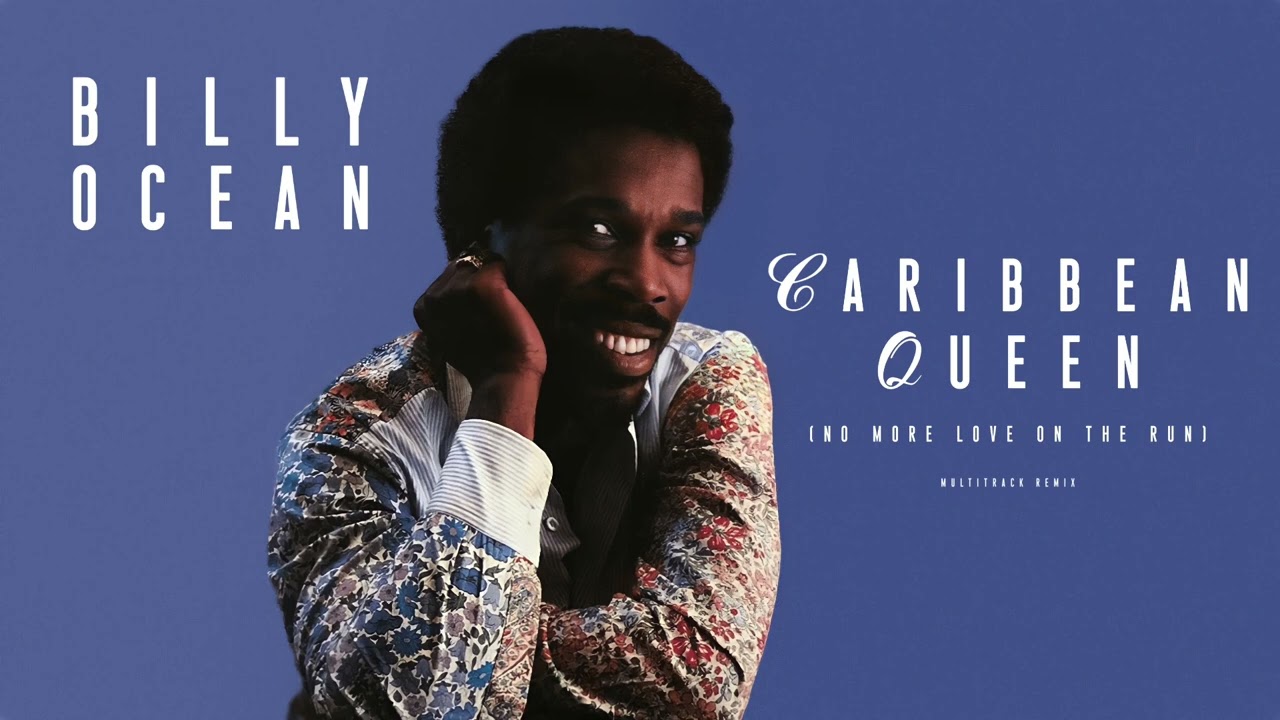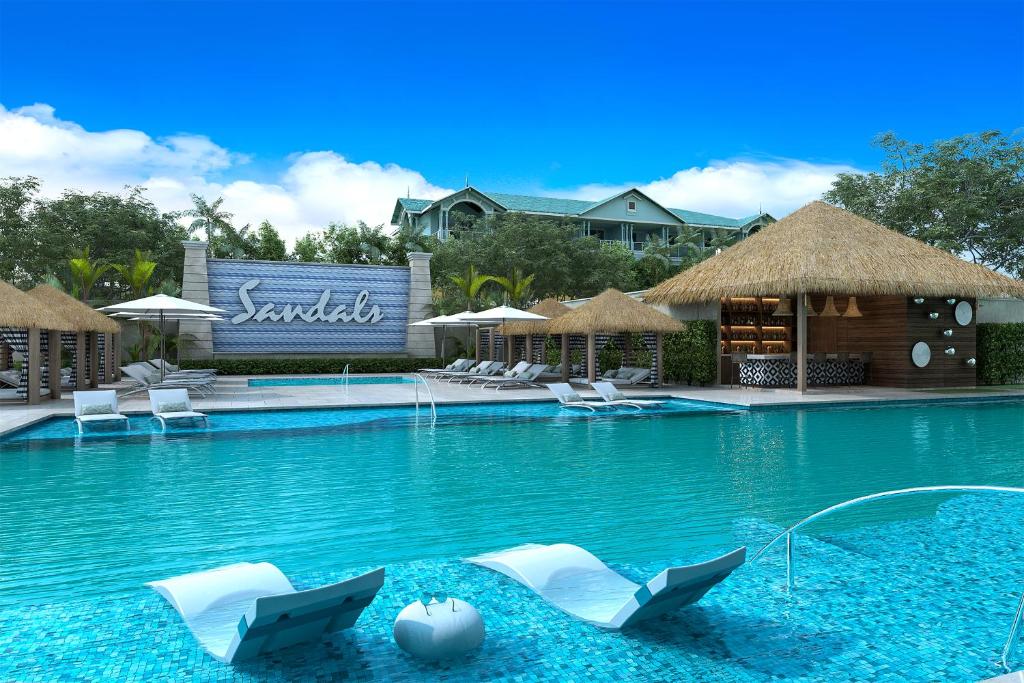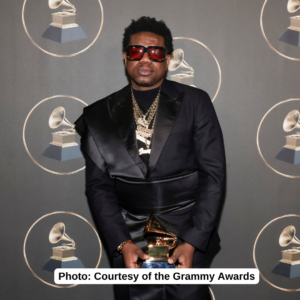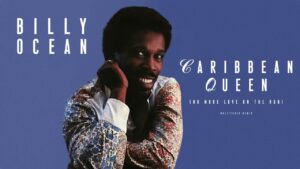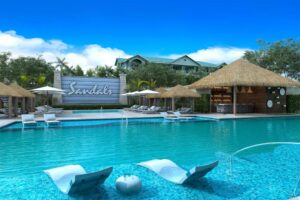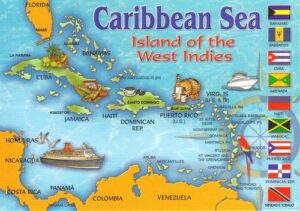Caribbean Links: A Journey in international Banking, Community Development and Representation for Barbados with Honorary Consul David Cutting
Kysha: 0:00
David Cutting, the Honorary Counsel of Barbados to Georgia and a Chancellor at the Counselor Corpse College, is our guest on today’s Pulse of the Caribbean podcast.
Kysha: 0:13
David Cutting, the Honorary Counsel of Barbados to Georgia and a Chancellor at the Counselor Corps College, is our guest on today’s Pulse of the Caribbean podcast. We had the pleasure of meeting David at the Caribbean American Cultural Arts Foundation’s Captain of the Industry Gala in Atlanta, Georgia this year at the event that brought a diverse community of people together to honor and recognize remarkable Caribbean people doing exceptional work in various spaces. With that, we say welcome to David Cutting, an accomplished Caribbean national, who we will learn more about today.
David: 1:39
Thank you very much.
Kysha: 1:41
We are the Pulse of the Caribbean, so tell us what makes you Caribbean.
David 1:45
Well, I was born and raised in Barbados. I left Barbados at the age of 18 and immigrated to New York to join my family, and I’ve stayed in America ever since, so well over 50 years.
Kysha: 2:01
Before we discuss your current distinction and role today, over 50 years Before we discuss your current distinction and role today, give us a brief history of your professional life as an international commercial banking professional with over 30 years of experience across North America, asia and Africa, and what it took to get there in terms of your education and experience.
David 2:23
Well, I think education was perhaps less significant. In the opportunities that I’ve had. I think I’ve always managed to be in the right place at the right time. So I always say to people that it’s better to be lucky than to be smart. I did complete an economics degree at Brooklyn College in 1976, on a part-time basis, because I started working almost a couple of weeks after arriving in New York in 1970. I started my banking career as a teller at a small savings bank in Brooklyn while I was pursuing my education at night. It took me five years to get my bachelor’s degree in economics, but I was always interested in banking as a career because, growing up in Barbados, I always admired the respect that the public had for bankers and I would go to the bank with my dad. I would see bankers well-dressed and being respected by the community, perhaps sharing the same prestige as the pastor and the headmaster and so on. So anyway, I pursued banking as almost an exclusive career. Once I graduated in 1976, I focused my attention on credit analysis. That credit analysis position landed me in an assignment in Egypt in 1979. I was asked to go out to Egypt and do a small assignment for three and a half months. The success of that assignment led to my being appointed regional head of credit in Singapore for manufacturers Hanover Trust. So I went out to Singapore in 1980. The mission was to essentially run the bank’s analysis unit which covered all of Southeast Asia. And in 1983, when that assignment was complete, I requested a shift to relationship management and pursued a position in Hong Kong, which I was able to be appointed to. So I moved to Hong Kong in 1983. I was the vice president and deputy country head.
David: 5:00
In 1994, I returned to New York. By that time Manufacturers Hanover had merged with Chemical Bank, so I was now. I went out as an employee of Manufacturers Hanover, came back as vice president for Chemical Bank and a year into that position in New York I was approached by Standard Chartered Bank, a British bank, and they were interested in my Hong Kong experience and they asked me to join their New York operation. I was keen to do that because Standard Chartered was one of the international banks that had a significant presence in Africa and I had always wanted to work in Africa. So I left Chemical Bank in 1995 and joined Standard Chartered in New York and with the idea that at some point I would have the opportunity to work in Africa because they had operations in 14 or 15 countries in Sub-Saharan Africa.
David: 6:02
That opportunity came in November 2000 when they asked me to go out to Nigeria as the chief executive for their business in Nigeria, and so I left New York in 2000, november 2000,. Took up that responsibility as the chief executive for Steward Chartered in Nigeria. What is interesting about the timing of that assignment is that my office, before I left New York, was at the World Trade Center, and in 2001, when the terrible event occurred, I was in Lagos and I would have been at work in the World Trade Center had it not been for that assignment. So sometimes, you know, luck plays a role. So I left.
David: 6:56
I worked in Nigeria for three years, I expanded the bank’s business there and then I was asked to go to Uganda to run the business in Uganda. I did that from 2004 to 2007. And then in 2007, I was again asked to shift countries and to move to Botswana as chief executive. That was at the time the bank’s biggest business in Africa. So I jumped at that opportunity and so I served as CEO in Botswana from 2007 to December 2010. That completed 10 years in Africa, more or less uninterrupted.
Kysha: 7:35
Wow, that certainly is an amazing history where you started off as a teller, you went to school part-time and it took you five years and you entered the field and you rose to such levels that you have taken across the world. What is the most memorable experience you had overseas?
David: 7:58
Well, there are many. Obviously, Singapore had significance because it was my first assignment in Asia and that’s where my two daughters were born. Then the family moved to Hong Kong and the children went to school in Hong Kong. For the next 10 years my career rose rapidly, from being head of credit to being deputy country head in Hong Kong. So Hong Kong and Hong Kong was a different Hong Kong than the one we know today, because this was before 1997 when the country was returned to China, and so it was. It was much more a, a, a world-class financial services center, um. Now, with the, with the Chinese, um, with the Chinese in charge of Hong Kong, things are a little bit different than they were in those times, the 80s and the 90s.
David: 8:53
The Africa experience, I have to say, comes very close to the experience in Hong Kong because, having worked in Asia and being one of only very few black people in the financial services industry in Asia I mean when I was in Hong Kong I hardly ever saw any other people in my industry who looked like me so the possibility of working in sub-Saharan Africa always excited me, working in sub-Saharan Africa always excited me.
David: 9:30
I had had the opportunity to visit Kenya in 1990 on a vacation, a safari vacation. So I had a taste of Africa. But the prospect of running a banking business in Africa really excited me. Africa really excited me and I think my career in Africa in those 10 years allowed me not only to pursue the bank’s financial objectives but it allowed me to use the bank’s influence and money to make a difference in communities that needed help in each of those countries in Africa. So in Nigeria, uganda and Botswana I was able to spearhead a number of community initiatives which allowed me to feel real pride in being a Black CEO of an international bank, being able to do something in the community with the bank’s money of course.
Kysha: 10:24
What would be one of the projects that you are most proud of, that you are able to assist.
David 10:30
Well, the bank had a Pan-Africa program called Seeing is Believing, in which they financed cataract operations for free for people in the community operations for free for people in the community and in many cases these operations restored sight.
David: 10:51
People had had temporary blindness because of their inability to get these operations. So I I was involved in, in sponsoring a number of these operations in actually all three countries, but mostly in Nigeria and in Uganda. In Uganda, we also had a program called Nets for Life, where we distributed treated mosquito nets to the rural communities to combat malaria, and so these programs meant a lot to these rural communities to combat malaria, and so these programs meant a lot to these rural communities. And being the chief executive of the bank and being the one who is responsible for the sponsorship of these programs, it gave me a lot of pride and satisfaction. Obviously, also today, many of my proteges, members of my staff in these three countries, have made it to the top jobs in those countries, and part of my, my objective, in africa was to replace myself with local management, because historically, the international banks would send expatriate CEOs to these countries. My mandate was to, in each of these countries, to develop local talent and prepare them to take over and in all cases, this is what happened.
Kysha: 12:23
That is awesome, certainly leading by example, showing in terms of corporate giving, mentoring and succession planning, putting people within their local communities in places of leadership. That is so awesome. Now, today, you serve as the Honorary Counsel of Barbados in Georgia. Council of Barbados in Georgia. Tell us about the significance of your position and what it means for you to serve your country in this capacity.
David: 12:49
Having left Barbados as a youngster and because of my career my international career not having had the opportunity to visit Barbados that often over my 30, 35 years of international banking, I consider myself very much a prodigal son and when I retired from banking in 2011, I was thinking of what I could do to give back to my country and my predecessor in the role of Honorary Counsel, dr Edward Lane. He had been in the job 22 years and he was really looking to step down and to retire and in 2015, we discussed my considering taking on the role to replace him and I was appointed in 2015. So I’ve been in the role since 2015. And the responsibility of the Honorary Counsel is really to be a community representative for the government in an environment where the government is not in a position to have a full consulate. So the role is a volunteer one, it is unpaid and in this particular role for Georgia, I have administrative reporting to the consulate in Miami. So the consul general in Miami has responsibility for the entire Southeast and he has a number of honoraries under him. We have an honorary council in Charleston, in Houston, and we have somebody in Kentucky as well.
David: 14:33
So my role, as I see it, is to represent the government to the diaspora, the Barbadian diaspora community, also to promote Barbados as a destination for tourism and investment. There are organizations whose full-time job is to do that, for example, the Barbados Tourism Marketing Inc. They’re responsible for tourism, and there’s an organization called Invest Barbados which is there to assist potential investors with coming into Barbados. So I am essentially a marketing arm for them, without the resources of staff and remuneration. So there’s only so much you can do without staff and remuneration.
David: 15:27
But I use my, you know, I use my office here and the fact that I have become known in the community and the fact that I’m a member of the Atlanta Council of CORE in fact I’m on the board of the Atlanta Council of Cora as treasurer, and so that gives me a certain amount of visibility and that visibility allows me to promote Barbados at every opportunity. So that’s what I do. I almost call it a part-time job compared to the kinds of career opportunities that I’ve had over the years. Barbadians tend to be very law-abiding and very quiet, so I don’t have there’s not a lot of drama in our community. Some of my diplomatic colleagues have to visit prisons from time to time to help some of their diaspora with some of those challenges.
Mercifully I’ve not had to do that because for the most part Barbadians in my jurisdiction have been law-abiding and good immigrants, all right, certainly in terms of volunteering and voluntary service, that speaks volumes. That talks about service above self, as you are an integral part, as you mentioned, in the community there in Atlanta, georgia, and you are there as a representative for Barbados in the various circles that you travel within the community and you are there for the nationals of Barbados as needed.
Kysha: 16:25
Now tell us your thoughts of Prime Minister of Barbados Mia Moore Motley, the first female Prime Minister of Barbados, who led the charge for Barbados to have its own head of state. That is something that has not been done in many years, not until that move was made by Barbados in 2021. So give us your thoughts on that.
David 17:26
Well, obviously we’re proud of the fact that we’re now a republic. I think the press has made a lot more of it than is really necessary. I mean, I consider being a republic a natural progression from independence. We became independent in 1966. So we spent a long time developing what I call our sustainable economy and we had reached the stage by 2021 that we felt comfortable moving to that next level of identifying ourselves as a full nation without ceremonial allegiance to the UK, and so the Governor General, prior to being a Republic, would have had a dotted reporting line to the Queen, would have had a dotted reporting line to the Queen. After our Republic status, we get to be completely self-sufficient in the choice of who is our head of state, with no dotted line. But we continue to be a member of the Commonwealth and we continue to have an excellent relationship with the United Kingdom. So in many ways, not much has changed. But I think the pride that we feel as a republic is that in the appointment of our positions in government, there is now no need to mention the allegiance to the Queen or, in this case, now the King. We are very proud of that.
David 19:10
Even though we’re small, we have been a successful democracy. We have always had peaceful transfer of power from one government to the other. We basically have two major political parties, the Barbados Labour Party and the Democratic Labour Party, and their ideologies are fairly similar. So when governments change, not much changes really for the population. It’s almost a beauty contest and from time to time our governments have changed, but we’ve had political leaders who have been full of integrity and I’m very proud of that, because one of the challenges that I’ve noticed in my time in sub-Saharan Africa is that, although many of those countries have achieved independence around the same time that Caribbean nations achieved independence, the big difference is that there has been a noticeable lack of corruption to the degree that the population has suffered in the country, as in Africa, has suffered in the country as in Africa.
David 20:30
Many of those African countries have suffered from bad leadership and corrupt leadership, which has hurt the population. It doesn’t mean that there’s a total absence of corruption anywhere, but it’s a matter of degree, and the social and economic development of the Caribbean states have suggested leadership with integrity, which is really, really important, and I believe that that is something that has hurt the potential in sub-Saharan Africa, in not all countries, but in many of the countries.
Kysha: 21:05
And what are your thoughts on some of the significant work that Prime Minister Motley is doing on the global stage? We know that she led the charge as one of the world’s most prominent voices on the severity of global warming, and she has also given vision, or has the vision, for cutting fossil fuel in Barbados by 2030, in terms of having all homes on the island have solar roof panels, restoring coral reefs and planting millions of trees and I know that you are into sustainability works, so tell us your thoughts on that and the work that Prime Minister Motley is doing to move this forward that and the work that Prime Minister Motley is doing to move this forward.
David: 21:53
Obviously, we’re very proud of the Honorable Mia Amon-Motley and what she has done, not just for Barbados, but what she’s done for the Caribbean. She is an eloquent and articulate voice when it comes to discussing the challenges that small island states face. So she has become sort of the undisputed spokesperson for the Caribbean and for small island states all over the world, and she has done a fantastic job of explaining the impact that global warming has had on countries that are dependent on tourism. And she has also been very articulate at conveying the responsibility that the larger countries have for helping the smaller countries, because, after all, the larger countries are the ones most responsible for global warming and the impact has been very, very strong on the islands.
David: 23:05
You have ocean levels rising and the fact that countries that depend on tourism for their living. They are much more vulnerable to the effects of global warming and I think that having someone who is fearless in exposing, you know, the countries that are responsible has really been helpful to us. She has raised the bar for Barbados, she’s raised the bar for the Caribbean, and so it’s not just Barbadians who are proud of her. I think all the people in the Caribbean are proud of her and encourage her to continue what she’s doing, so it is my great honor to be serving under such a leader.
Kysha: 23:59
Now, in addition to your work as the Honorary Counsel of Barbados to Georgia, you’re also a chancellor at the Counselor Corps College. Tell us about the Counselor Corps College and your role there.
David: 24:12
Yeah, the chancellor, there are about nine or ten chancellors, I’m not the only one and it’s sort of it’s, I guess, another term for a board director. They don’t use the term board directors, they use the term chancellor because it’s a quote-unquote college. I joined the Council of the Court College shortly after I was appointed. The Council of the Court College is a national organization of foreign representatives of countries, mostly honorary councils. Some of them are councils but most of them are honorary, and I think the intention and it’s about a 50 year old organization and in some ways honorary councils have been treated as second-class citizens to councils, generals and ambassadors. They don’t have the same benefits and they don’t have the same stature, but in many cases they have the same responsibility. So the college was formed to basically share knowledge and to help honorary councils across the country.
David: 25:36
There are thousands of honorary councils representing hundreds of countries across the nation and we get together once a year. We have meetings with the State Department, mainly to discuss some of the challenges faced by honorary councils, given that they have the responsibility without authority and and without financial support, and and so we’ve been trying. The job of the challenge of the chancellors really is to try to essentially recruit honorary councils and encourage them to join the college. The college provides a number of webinar, educational webinars to help educate honorarys on the roles that they play, because a lot of times Honorary Councils don’t get the the I would say, the training that that they need to get from their embassies and so on. So I think that the organization has played a role in that.
David: 26:47
I’ve only been a year in the role as a chancellor. Obviously, the pandemic put an end to a lot of our meetings for a couple of years. We recently restarted our regular meetings, but I think it is important for people who have similar roles to come together and share experiences so we get the opportunity to listen to the challenges faced by our fellow honorary councils in different parts of the country who represent different countries.
Kysha: 27:22
You mentioned recruiting, mentoring, schooling and providing the tools so that other honorary councils can be successful in their duties for their country. That is awesome. Tell us about the importance of global relations as you see it, because this is a network of councils coming together from across the globe. We may not all have the same vision as it relates to global affairs, but certainly it is a global community. Tell us the importance of global relations, including your relationship with those that you work with and other honorary councils from across the globe.
David: 28:01
In Atlanta, we have over 70 countries who are represented with either consulates general or honorary councils. Of course, the majority of them are honorary councils. Many of the countries have their consulates in Miami, new York, some of the bigger cities, but Atlanta is becoming more and more important as an international city and therefore more and more consulates generals are being appointed in Atlanta. For the Caribbean, for example, we have councils general for the Bahamas and for Haiti, and honorary councils for Guyana and for Barbados and Jamaica. So it’s a small Caribbean diplomatic corps, but it reflects the diaspora population that we have in Atlanta. One of the things that diplomats are advised is to be careful about getting too involved in politics. Now, that is much more important, I think, for Councils General, because they are officially representing the country that appointed them, and so they have to make sure that they stay out of domestic politics because they’re representing not the United States but their own country. Honorary councils are a little bit different, because we are citizens of the United States, but we also represent foreign countries, so I can speak as an individual American citizen and I can when I’m when I’m speaking on behalf of Barbados, I can clarify that I’m speaking for Barbados, so I have to explain which David Cutting is speaking.
David: 30:12
I have my own personal views about the state of global politics. I am particularly concerned about what happens in Africa because of my ancestry, so I’m concerned about what’s going on in Sudan. I’m concerned about what’s going on in Sudan. I’m concerned about what’s going on in Congo. Obviously, I’m concerned about the situation in Ukraine because that has broader implications.
David: 30:50
But you know, the diplomatic core around the world is designed to make sure that conflicts can be handled through conversation, and I think it continues to be an important role that diplomats play, that, even though countries may have disagreements, the representatives, the diplomatic representatives for those countries, can still sit down and have lunch or coffee and talk to each other, and I think that it is important that those conversations are able to be continued, even though the two countries may officially be at loggerheads, because you won’t get peace or a solution if the diplomats are not able to meet and discuss and negotiate. So I think that, while the politics is what gets all the headlines, diplomats are quietly having meetings with each other, trying to work out a solution that is mutually beneficial, and I think that’s an important thing. That’s one of the reasons I have been happy to be part of the Diplomatic Corps because I recognize the value that it has. I mean, I have, over the years in my career as an international banker, I’ve worked and met with people from all cultures and those relationships that I have developed has allowed me to continue to have conversations with those individuals, whether it’s in Asia, whether it’s in China, whether it’s in Africa, and I think diplomats do the same thing.
David: 32:40
Diplomats get appointed to different countries from time to time. So if you served in Africa and then you served in the US, you served in Europe, you keep those relationships and you’re able to use those relationships to help when there’s a political problem that needs to be resolved or if there’s a social problem that needs to be resolved. So it’s I think it’s a very important role that’s played that doesn’t get as much attention or appreciation because the work of diplomats is quite understated and below the radar.
Kysha: 33:19
It’s about building relationships, networking and being able to have that conversation, despite whatever differences, and perhaps having those conversations, you’re able to have a medium, whether you’re able to have the air or to bring help in resolving, or bring about resolutions or finding common ground. Now, in addition to serving in your official capacities, you are an independent consultant and advisor to various organizations focused on sustainable development in Sub-Sahara Africa and the Caribbean. Tell us briefly about that.
David: 34:05
Given my international banking career in the emerging markets of Asia and Africa that in my retirement I would be able to continue to add value to organizations that are interested in doing business in those areas, in those markets. So I’ve marketed myself to companies that wanted to do business in Africa or do business in Asia or do business in the Caribbean. My background and knowledge of those areas has always, and continues to be, of interest.
Kysha: 34:39
In one of our conversations prior to today’s podcast, you spoke about the benefits of doing business in the Caribbean, specifically in Barbados, and is that one of the things that you would do in your consultancy?
David: 34:55
Well, I mentioned earlier the role of Invest Barbados. Invest Barbados is an agency of the government of Barbados, and their job is really to promote Barbados as a destination for investment. When Barbados realized that it was overly dependent on tourism, over 25 years ago, they developed an international business platform, which was intended to help offset their almost total reliance on tourism. And so this international business platform that Barbados has developed allows for companies to establish a legal presence in Barbados to take advantage of the fact that Barbados has over 45 double taxation agreements with various countries around the world, and what that basically means is that if you have a Barbados company and you’re paying whatever the tax requirement is, you can offset the taxes that you pay in Barbados against the taxes that you pay in your home country. Now there are lots of jurisdictions around the world that offer no-tax opportunities. Barbados is not one. We offer a low-tax as opposed to a no-tax environment, but a number of companies have found it advantageous to accept to have a presence in the Caribbean because they’re targeting the market in the Caribbean.
David: 37:07
Barbados has been fortunate to be selected by a number of international agencies as a regional headquarters by a number of international agencies as a regional headquarters, for example, the United States Embassy, UNICEF, a number of international agencies have chosen Barbados because they believe Barbados is the best place for them to market the entire Caribbean.
David: 37:31
Obviously, some organizations have chosen other Caribbean destinations, but Barbados has been a popular choice because of its stable environment, its high standards of integrity when it comes to law and safety, law and safety, and also the technology infrastructure is also quite good compared to some other places.
David: 38:04
So there are lots of advantages and when I advise companies that have that interest, I direct them to invest Barbados, where they can get the details and those people who could check the website, which is in invest Barbados.org, and they will find on that website all the a description of the various advantages and also the investment opportunities that are available in Barbados. But I think that there are lots of jurisdictions around the world that try to attract companies to establish a legal presence in their jurisdiction. You’ve got places in Europe and the other part of the Caribbean as well. There are other countries in the Caribbean who offer the same thing. So there’s a lot of competition for this business and I think you know in my role I will have to direct people to the people whose job it is to market these services. I am just a high level promoter, but I don’t profess to have all the details.
Kysha: 39:22
Okay, but certainly you facilitate the discussion. What would be your message to someone younger starting out and doing all the things that you have done Now? It may not necessarily be in the banking field, but certainly your philosophy in terms of how you have lived your life. Your message even to your younger self as to where you have been, how you started and where you are today yeah, obviously I.
Kysha: 39:48
I’m a big fan of education. I think it’s important that young people get a college education, at least a college education. These days it is becoming less critical depending on what your interest is in terms of a career, and there are lots of jobs that don’t require a college education. In my case, I thought it was important. But what I think is more important than the academic side is that you need to be prepared for opportunity at all times, and I always tell my younger protégés you never get a second chance to make a good first impression.
David: 40:41
So every time you leave your home, it’s an interview. How you present yourself, how you look, that’s what people are going to remember first. The very first impression that they have of you is going to be the lasting impression, and you may not get further than that first impression. If that first impression is negative, you’re finished. So, I would say to young people always be prepared, always present your best self and never stop learning. Even when your formal education is finished, you can continue to learn. I’ve done that, I continue to do. I learn every day.
Kysha: 41:29
Certainly that’s life we are learning every day, and what is your message to Caribbean nationals about our people and our global impact?
David: 41:41
Well, I think people from the Caribbean should be very proud of how the region has developed itself and how the region has been able to contribute significantly beyond their weight.
David: 41:59
I know that former Secretary General Kofi Annan described Barbados as a country that consistently fights above its weight, but I think that that is becoming more generally true of the Caribbean.
David: 42:15
When you look at the number of people from the Caribbean who have made significant contributions to the development of the United States and we recognize them every June when it’s Caribbean American Month, and we talk about the many people from the Caribbean who have come here and in almost every field of endeavor they have excelled.
David: 42:40
And I think, given the current political climate that we’re in, it is even more important now for immigrants from everywhere, but in my case, particularly from the Caribbean to continue to remind people of the value that we bring and how well we have contributed and what the work ethic has been, as opposed to the message that seems to come from certain political circles that you know, immigrants are a bad thing and that immigrants are criminals and murderers and rapists, that that is patently untrue. Um, they’re very, very small, but for the most part, immigrants have contributed positively to the development of this country and it seems more and more important that you, in your individual diaspora communities, you make sure that you can document and promote the members of your community who have contributed to this country’s development.
Kysha: 43:53
What is your life philosophy?
David: 43:56
It is important to be authentic. Authenticity, to me, is the most important value to have, because people can see through you very easily and if you are authentic, then people can see through you very easily. And if you are authentic, then people can trust you. And I have found that that has been successful for me in my career and in my personal relationships um, your, your name and your reputation is more valuable than your bank account, more valuable than your bank account. And you know, if I recommend somebody or I ask some of my former colleagues to, you know, to give an opinion on something, I have found that people will cooperate with me on that because they have worked with me, they know me and they trust that. If I’m asking that, there’s a good reason for me to do that and I think that that’s something that’s. You know, money can’t buy that.
Kysha: 45:00
For anyone who has not been to Barbados, tell us must do, must try in Barbados.
David: 45:09
Well, obviously I’m biased in saying that we have some of the best beaches. We have over 300 restaurants. The country has preserved its history really well and it continues to do that. It’s a safe environment. You can go to Barbados and you can. You can walk around at any hour of the day or night and feel safe, and Barbados is a very welcoming environment. Um, many of the people who are repeat visitors in fact, I think Barbados has the record for the highest percentage of repeat visitors in the Caribbean People that go there want to go back again and you know, I just think that, as a small country, we’ve done a good job. comfortable and there are things that we can continue to improve on, but in general, we have always created an environment where people feel comfortable and you can have a lot of fun, and you know, I think that that’s something that should be proud of.
Kysha: 46:23
I’m certainly proud of tell us your favorite beach in Barbados and your favorite Bajan dish.
Speaker 2: 46:28
Well, I think Pebbles Beach is the one that I enjoy the most and in terms of, obviously, our national dish, flying fish and cuckoo. But seafood generally in Barbados is very good and it’s promoted. Lots of people who have been to Barbados have enjoyed the experience at Oystins, which is a Friday night lime, as they call it, where fish is cooked for you as you wait. And you know, I think it has. It has driven a lot of positives for our tourism.
Kysha: 47:18
David Cutting, thank you for joining me on today’s Pulse of the Caribbean podcast.
David: 47:24
Thank you.
Kysha: 47:26
The Pulse of the Caribbean congratulates and salutes you, David Cutting, for your service throughout your professional life as an international commercial banking professional, for the work you continue to do today on the world stage as the Honorary Counsel of Barbados to Georgia and as a Chancellor at the Counselor Corps College, and for your independent consultancy and serving as an advisor to various organizations focused on sustainable development in Sub-Sahara Africa and the Caribbean.
David: 47:56
My name is David Cutting. I’m the Honorary Counsel for Barbados in Atlanta. I’m a retired international banker. I have traveled the world and I recommend that people consider travel as a way of understanding different cultures, and I consider myself the Pulse of the Caribbean.

